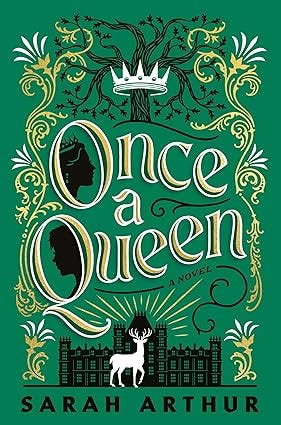I used to think evil was impressive and dramatic. I recall mocking Atlas Shrugged because the villains were so mealy-mouthed and unimpressive.
I was so wrong. When I saw evil closer up, that is exactly what it looked like—eye-glazingly boring and yet insidious.
Impressiveness is a quality of goodness. Goodness is a quality of God. Without God, you have no good. Without good, you have no good qualities: no truth, not impressiveness, no greatness.
Only lesser evils, in the great scheme of things can truly be impressive—the kind where maybe a man is doing some truly evil things, but he still has other good qualities, too (such as impressiveness, intelligence, etc.)
Greater evil is deadly dull. Terrible, yes. Destructive, yes. Interesting in itself, no. In fact, it is often difficult to focus upon, as it seems so uninteresting or unpleasantly vile…the kind of thing from which you just want to look away.
This is one reason evil gets away with so much. Evil accomplishes much more with apathy than it ever does through grandstanding.
Some people like to pretend Hell will be fun. There’s a series of books out there with titles that imply that Hell’s a great place to go because all the “exciting people” are there. I even once saw a cartoon, maybe from the New Yorker, that showed Hell with a piece of pie among the burning flames, and some foolish young lady online posted that she’d go there for the pie.
Oh, sweetheart, Hell is not a place you want to go.
There are no parties. No pie. The pie is a lie.
Now, you may be thinking: What does this have to do with Susan Pevensie?
Susen Pevensie, the older sister from The Lion, the Witch, and the Wardrobe, went to Narnia with her siblings and lived there for many years. However, in The Last Battle, her brother Peter reports that she is no longer a friend of Narnia, and Jill says Susan is “interested in nothing now-a-days except nylons and lipstick and invitations.”
There is an ongoing movement to twist C. S. Lewis’s words about Susan. They want to make Susan’s slip from grace about sex, and then, though they seldom do outright, they want to put across the idea that Lewis is bad to have implied this because sex is good, and we should all have more of it.
As if lust were not a deadly sin.
According to Lewis, Susan does not end up with her family at the end of the Narnia books because she’s been seduced away by worldly things. (Note that it would have been very easy to say that she was interested in boys. He didn’t say that. What’s more, it is Jill, another girl, who categorizes Susan as only interested in lipstick, nylons, and party invitations—the things that shallow women of that day were interested in.)
But people today, who have been seduced by the very same worldly things, try to argue that this fate of hers is unfair.
They don’t come outright, most of the time, and chant, “Free love! Free love! Everybody come and get some!” But they want, by their tone, for you to know that superior people support such things, and only inferior people—prudes, you know—think there could be anything bad about it.
In a Guardian article, anti-C.S.Lewis author, Philip Pullman, summed it up thus: “I just don’t like the conclusions Lewis comes to, after all that analysis, the way he shuts children out from heaven, or whatever it is, on the grounds that the one girl is interested in boys. She’s a teenager! Ah, it’s terrible: Sex — can’t have that. … so dreadful and so redolent of sin that he had to send her to Hell.”
See what I mean?
The evil attempting to ensorcel Susan is not dramatic. She doesn’t murder babies (not even in the womb). She doesn’t starve or whip innocent children. She’s just an ordinary young woman, interested in ordinary things, like lipstick and nylons. So, obviously, missing out on Narnia? Maybe going to Hell? This is totally unfair, right?
But what if it is not?
St. John Bosco, a Catholic saint, once had a vision of Hell. To his horror, he saw young men he had taught burning there, boys whom he thought of as good and hard-working. One of the causes for this suffering, he was told, was idleness…they had drifted gently away from God, stopped praying, and fallen into gossip and laziness, and this spiritual laziness slowly wafted them away from Heaven.
He found that being polite, respectful, and avoiding big sins was not enough…if they rejected grace, hid sin, or did not give their heart entirely to God.
Being fun at parties, taking good care of one’s house, looking pretty for a night out on the town, gossiping with one’s friends after work…none of these things are evil, but they can be, if they distract us from growing closer to God.
They can hide the boring, dull force that is true evil, make it seem uninteresting and not worth bothering about, so we don’t avoid it.
Make us forget we ever met Aslan.
If you had gone to Narnia and you had been granted a gift that billions of people would have given their lives for—to walk with Aslan and see him in the flesh—and you let yourself be seduced by worldly things and forgot Aslan…
If you turned away from good, in its papable leonine form, to scramble after evil, in its mundane, boring, just drifting away from good form…
…wouldn’t you deserve what’s coming to you?
The real evil isn’t the lipstick or the parties…the real evil—the boring but destructive evil—is the lies of the people claiming that Susan’s treatment is unfair…that her lifestyle is preferable, that you are a (put in slur of your choice here) if you even begin to suggest that whoring around, taking up alternate lifestyles, or, whatever the corrupt cause of the day is, is anything but great for men and especially women (not that Susan behaved that way, but they read into it.)
How many have fallen away from All That Is Good just because of the mild sarcasm, eye-rolling, and slight snideness of the degenerati?
Better to kick Aslan in the face and go live “your own way” than attempt to earn the approval of a God who would dare to suggest that making yourself pretty and other worldly things is not the be-all of existence, that maybe you should be pursuing the Way.
Recently, I was thinking about the parable of the servant who is forgiven the 10,000 he owes his master but won’t forgive the 100 another servant owes him, and I realized that if the 10,000 represented our debt to God—the wrong we have done—and the 100 represented harm that others might have doneto us, we must be doing much more wrong than we realize.
We may think we are good, but we are racking up spiritual debt at an astonishing rate.
What kind of debt? There’s a book that, sadly, I cannot recall the name of, about a woman who was thrown into Hell as part of a vision. Her experience was truly horrific, but one thing that stood out to me was: In Hell, we are stripped of our ability to lie to ourselves.
She saw that every negative thought, every nasty emotion, was a full attack on God and his children and a rejection of his goodness, for which, once she could not justify herself any longer, she could see she deserved every moment of torment.
We have all dug our own bed of sin, and, without God’s help, we will be forced to lie in it. If we want to escape what is coming to us—the punishment we deserve—we had better turn our hearts entirely to God and follow the path He has laid out for us!
Susan’s sins might not be terrible or dramatic, but she turned her back on Truth, and God is Truth. The same will be true for us if we choose the accolades of the world over the Straight and Narrow Way…the Way that takes us safely through the Wood Perilous to the glories on the far side.
If this is the case for you, and you have strayed from the path, you also deserve the punishment coming to you.
Thank God, literally, that there is a way of escaping what’s coming to us, someone willing to forgive the 10,000 we owe, someone willing to take the punishment we deserve and let us go free,
Someone who truly deserves our gratitude.
And if He has come and spoken to us and saved us, we should not tell others that He is merely a fairytale from when we were children, as Susan does.
We don’t actually know Susen’s final fate. C. S. Lewis once wrote:
The books don’t tell us what happened to Susan. She is left alive in this world at the end, having by then turned into a rather silly, conceited young woman. But there’s plenty of time for her to mend and perhaps she will get to Aslan’s country in the end… in her own way.
In life, many people we love make bad choices, people in our families or whom we grew up with, or public figures whom we adore. It does not do them any good to pretend that what is bad is good.
Pray for them, for the Susans of the world.
Because until the Last Day of the Last Judgment, there’s still hope…
If you want a really beautiful, truly magical look at what might possibly have happened to Susan next, try Once A Queen. In this Narnia/not Narnia book, the heroine is not actually Susan Pevensie, but she might as well be.
Told from the point of view of her granddaughter, who has moved back to England from America, it tells of the life of a woman who might have been Susan.






It's easy to think of hate as being the opposite of love, but someone wise once pointed out that the opposite of love is actually indifference. And that seems to be the true sin of this age: The lie is that we have so much wealth, so little need, that we also have no need for God, and so can safely ignore Him.
After all, those who are zealous for the truth, but serve not God, can (but may not) by some tangent or an encounter on the Road to Damascus come to learn of the truth of God and His Messiah, and then use their divinely granted gifts in His service. Those who hate God can (but may not), by learning about Him whom they hate, come to realise the truth. Those who are indifferent to the divine in any form are unlikely to make any effort to learn of God, and are unlikely to do anything but reject any attempt to teach them of the truth, and so are much more likely to be part of the path where the sower's seed has no impact.
Fortunately, by God's grace, no-one is beyond the pale. All, no matter how indifferent or opposed, have the option of repenting, and none are so far gone that God cannot work in their hearts to enable them to do so.
It is interesting that Lewis says we don't know what happened to Susan. Because he also says this, "Once a king or queen of Narnia, always a king or queen of Narnia."